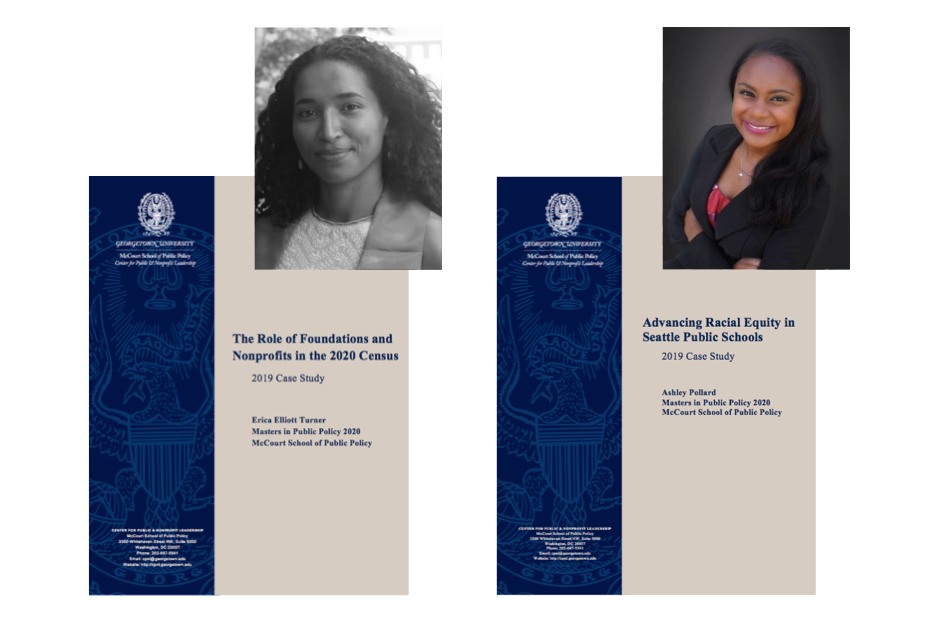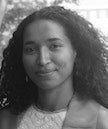New Graduate Fellows’ Case Study Research

Posted in News Story
During the 2018-2019 academic year, the Center for Public and Nonprofit Leadership provided opportunities for McCourt School graduate students to join the center as research fellows and conduct independent research. Erica Turner served as the Waldemar A. Nielsen Research Fellow, and Ashley Pollard, as the Pablo Eisenberg Public Interest Research Fellow. We are pleased to share their case studies on the 2020 Census and racial equity in public schools.
The Role of Foundations and Nonprofits in the 2020 Census

Erica Turner investigated the role that foundations and nonprofits are playing in the 2020 census. Through her research, she learned about the importance of obtaining an accurate count in order to achieve fair representation in government and equitable access to resources.
The census is closely tied to the topic of racial inequality. The groups that are most likely to be undercounted are also the underserved communities that hold less political power and lack sufficient access to resources. Several factors can contribute to an inaccurate count including housing insecurity and language barriers. With the ongoing uncertainty of the new citizenship question, undocumented immigrants and their family members will likely be discouraged from participating in the census out of fear of deportation. “This administration is seeking to weaponize the census in order to reduce the political power of immigrants and their families,” Turner said.
Nonprofits and private businesses use data from the census to determine where they can have the most impact. An undercount causes those resources to be distributed in ways that fail to address the needs of minorities. Nonprofits have always been involved in census advocacy; however, Turner noted that recently, foundations have also actively taken a stand. The census is an increasingly politicized issue and foundations usually want to stay out of politics, but in this case, achieving an accurate count lines up with their strategic goals.
There are many ways to get involved in census advocacy. For nonprofits, Turner suggested using toolkits created by organizations such as the Leadership Conference on Civil and Human Rights. The Funders’ Committee for Civic Participation offers a similar toolkit for foundations. As the 2020 census quickly approaches, “Individuals can volunteer to be census enumerators, especially if [they] have important language skills for underserved communities,” Turner said.
The case study can be accessed here.
Advancing Racial Equity in Seattle Public Schools

Ashley Pollard became interested in racial equity when she was teaching at a public school in North Carolina. “Race is something that generally in America we don’t talk enough about, particularly in schools,” she said.
After conducting background research on school districts across the county, Pollard chose to focus her case study on Seattle Public Schools since the district already has a fairly established racial equity policy. Implemented in 2012, Policy 0030 pledges to address the issue through several commitments such as recognizing diversity and fostering welcoming school environments. Pollard attributes the Seattle school district’s success in reducing racial inequity to the community’s active role. “A lot of the momentum has happened because of family and community engagement … Families keep the school district accountable,” she said.
Pollard recommends that individuals attend local school board meetings in order to see what steps their leaders have taken to address the inequity in their district. One of her main takeaways from her research is that coming up with a policy is a great way to set clear goals, but teachers should not wait for one to start addressing racial inequity in their own classrooms. Real change can come when individuals reflect on their own interactions and biases.
Read Pollard’s case study here.
.
